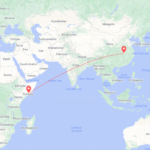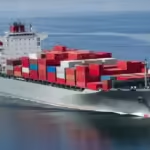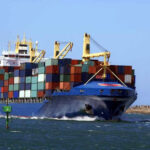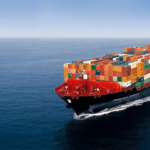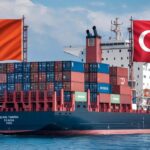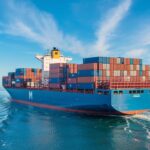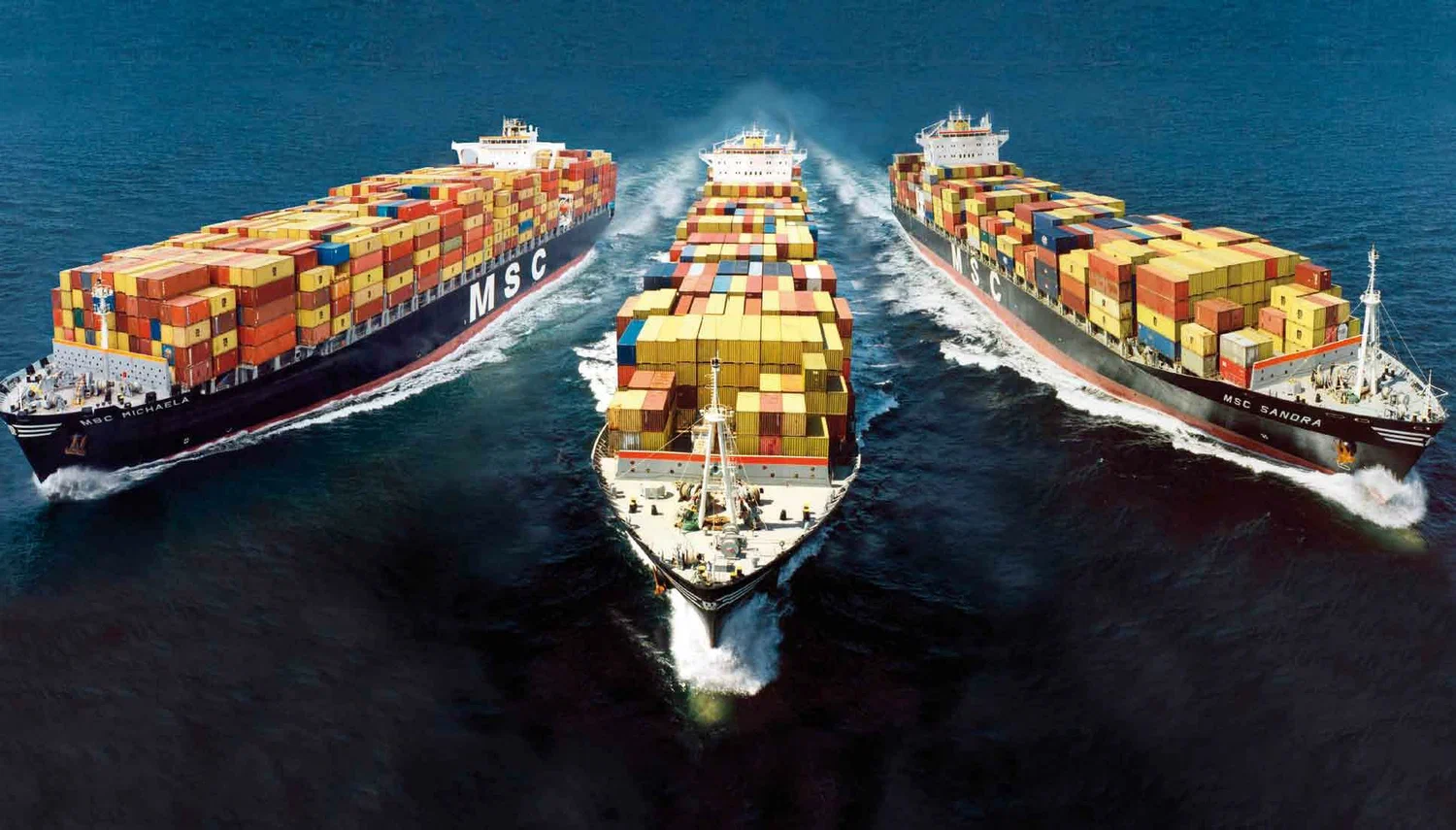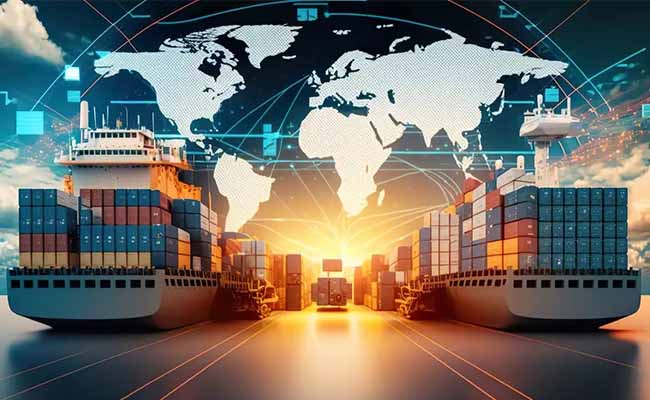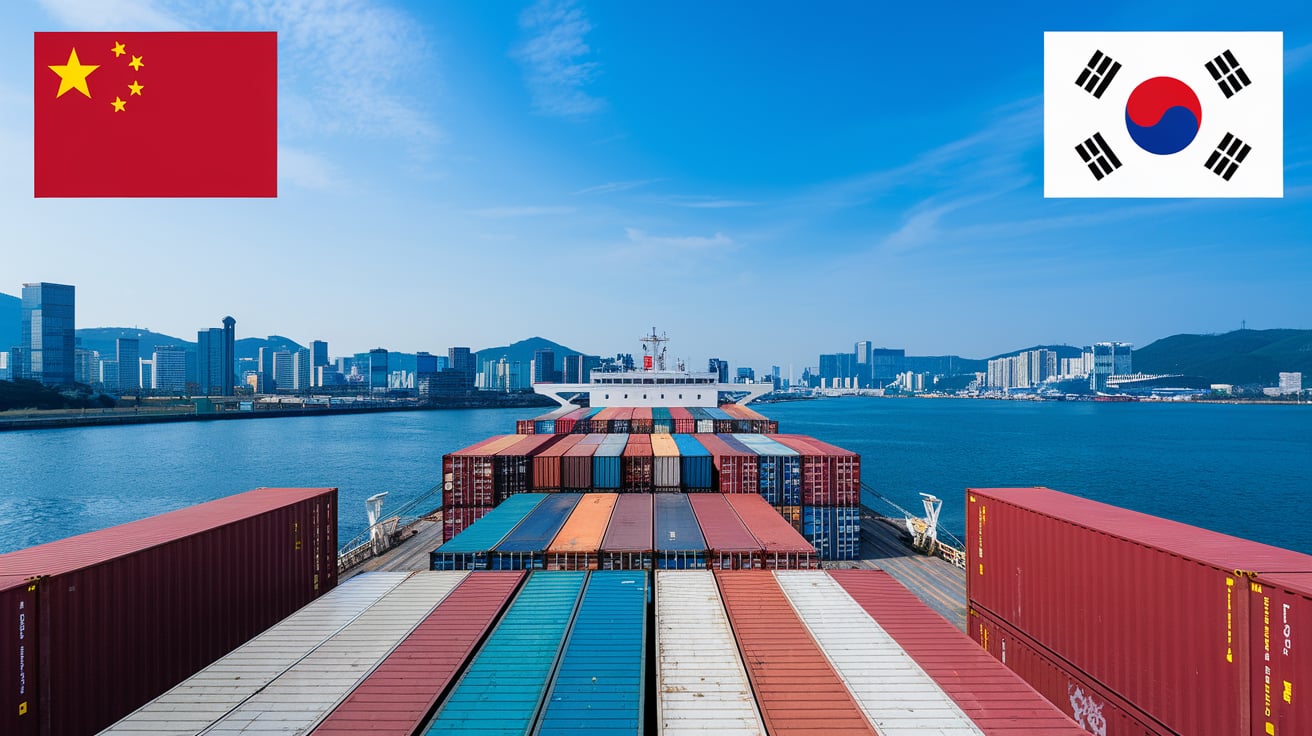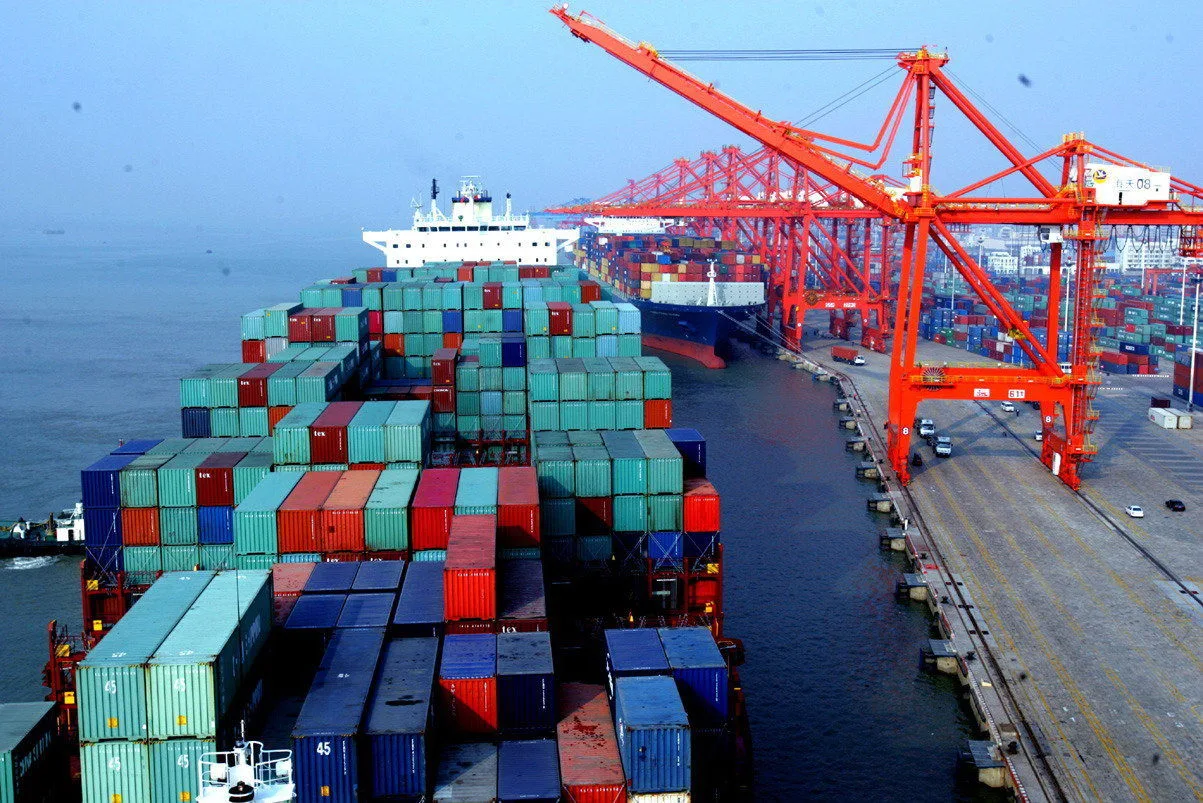In today’s globalized economy, the ability to efficiently import goods is crucial for businesses seeking to thrive in competitive markets. One of the most effective methods for transporting large volumes of goods from China to Uganda is through sea freight. This shipping method offers numerous advantages, including cost savings, capacity for bulk shipments, and a lower environmental impact compared to air freight. As industries in Uganda continue to grow and diversify, understanding the benefits and intricacies of sea freight logistics becomes essential for importers looking to optimize their supply chain. In this article, we will explore the various advantages of sea freight from China to Uganda, along with the processes, costs, and potential challenges involved, providing valuable insights for businesses aiming to navigate the complexities of international trade.

Understanding Sea Freight: A Comprehensive Overview
Sea freight refers to the transportation of goods by vessel across oceans and seas. This method of shipping is primarily utilized for transporting large volumes of goods, making it the preferred choice for businesses engaged in international trade. Goods can be shipped in various forms, including full container loads (FCL), less than container loads (LCL), and bulk shipments. In recent years, the efficiency of sea freight has improved with advancements in shipping technology and logistics management, allowing for faster transit times and reduced costs.
The fundamental components of sea freight include:
- Vessels: Different types are used based on the nature of the cargo, including container ships, bulk carriers, and tankers.
- Containers: Standardized containers allow for quick loading and unloading of goods, facilitating easier transfers between different transport modes (intermodal transport).
- Ports: Major maritime gateways, such as those in China and Uganda, are crucial for international trade. Efficient port operations significantly influence shipping timelines and costs.
The Importance of Sea Freight in Global Trade
Sea freight plays a vital role in global trade for several reasons:
-
Cost-Effectiveness: Compared to other shipping methods, particularly air freight, sea freight is generally more affordable for transporting large volumes of goods. This makes it an attractive option for businesses looking to reduce logistics costs.
-
Capacity: Sea freight vessels can carry substantial amounts of cargo, making them ideal for bulk shipments. This is particularly beneficial for manufacturers and wholesalers importing goods from countries like China, where production capacities are high.
-
Environmental Impact: Shipping by sea is often considered more environmentally friendly compared to air freight. While all modes of transport contribute to carbon emissions, shipping vessels have a lower carbon footprint per ton of cargo transported over long distances.
-
Diverse Cargo Types: Sea freight can accommodate a wide array of cargo, including perishables, textiles, machinery, and raw materials. This versatility is essential for importers in Uganda who engage with various sectors, from agriculture to manufacturing.
-
Global Connectivity: Major shipping routes connect Asia with various regions worldwide, including Africa. Sea freight facilitates trade between countries, enabling businesses in Uganda to access goods and materials from China, which is known for its manufacturing capabilities.
In addition to these benefits, businesses looking to leverage sea freight from China to Uganda can optimize their logistics processes through various services such as customs clearance, warehouse services, and insurance services. Dantful International Logistics specializes in providing comprehensive shipping solutions, ensuring that shipments are handled efficiently from the point of origin to the destination.
For those considering sea freight, understanding the intricacies of this method and collaborating with a professional freight forwarder like Dantful can significantly enhance the logistics experience. With Dantful’s expertise in international logistics, your business can navigate the complexities of importing goods seamlessly.
Advantages of Sea Freight from China to Uganda
Cost-Effective
One of the primary advantages of sea freight is its cost-effectiveness compared to other shipping methods, especially air freight. The logistics of shipping large volumes of goods over long distances by sea typically result in lower shipping rates per ton. This is particularly beneficial for businesses in Uganda that import products or raw materials from China, where manufacturing costs are already competitive. By leveraging sea freight, businesses can achieve significant savings on transportation, allowing for more competitive pricing of their products in the local market.
Accommodates Large Shipments
Sea freight is designed for bulk transport, making it ideal for businesses that need to import large quantities of goods. Container ships have the capacity to carry a wide range of products, from machinery and industrial supplies to consumer goods. This characteristic is especially advantageous for Ugandan companies looking to source substantial shipments from China. With options for full container loads (FCL) and less than container loads (LCL), importers can select the most appropriate shipment type based on their needs and budget.
Versatile Container Options
The versatility of shipping containers is another significant benefit of sea freight. Containers come in various sizes and types—standard dry containers, refrigerated containers (reefer), and specialized containers for specific types of cargo. This flexibility allows businesses to transport a wide array of products, including perishable goods that require temperature control. Importers in Uganda can choose the container type that best meets their product specifications, ensuring that cargo is transported under optimal conditions.
Reliable Transit Times
While sea freight does not match the speed of air freight, advancements in shipping schedules and logistics management have significantly improved reliability in sea transportation. Established shipping lines offer regular services with predictable transit times, enabling businesses to plan their inventory and supply chain more effectively. By partnering with a professional freight forwarder like Dantful, importers can receive accurate shipping timelines and updates throughout the shipping process, enhancing overall logistical efficiency.
Environmentally Friendly
Sea freight is often regarded as the most environmentally friendly mode of transportation for bulk shipments. Although all transport methods produce carbon emissions, ships emit significantly lower greenhouse gases per ton of cargo compared to planes. This aspect is increasingly important for businesses that prioritize sustainability and corporate social responsibility. By choosing sea freight, Ugandan importers can contribute to reducing their environmental impact while benefiting from an economical shipping solution.
Reduced Risk of Damage
Transporting goods by sea generally involves fewer handling processes compared to air freight, which often requires multiple transfers between modes of transport. This reduction in handling minimizes the risk of damage to goods. Additionally, shipping containers provide robust protection for cargo against environmental factors such as weather and moisture. For Ugandan businesses importing fragile or valuable items from China, the lower risk of damage associated with sea freight is a significant benefit.
READ MORE:
- Shipping From China To Algeria
- Shipping From China To Angola
- Shipping From China To Morocco
- Shipping From China To Nigeria
- Shipping From China To Kenya
- Shipping From China To Tanzania
- Shipping From China To South Africa
The Process of Shipping via Sea Freight
Step-by-Step Guide to Sea Freight Shipping
To effectively navigate the sea freight shipping process from China to Uganda, consider the following steps:
- Planning and Preparation:
- Identify the products to be imported, including specifications and quantities.
- Choose a suitable shipping method (FCL or LCL) based on cargo volume.
- Choosing a Freight Forwarder:
- Select a reputable freight forwarder, such as Dantful International Logistics, to handle logistics and documentation.
- Booking the Shipment:
- Provide your freight forwarder with shipment details, including origin, destination, and preferred shipping dates.
- Customs Documentation:
- Prepare necessary documents for customs clearance, including commercial invoices, packing lists, and certificates of origin.
- Your freight forwarder can assist with customs clearance services to ensure compliance with regulations.
- Loading and Transport:
- The freight forwarder coordinates the loading of goods into containers at the port of origin, followed by transport to the destination port.
- In-Transit Updates:
- Stay informed about the shipment’s progress through tracking services provided by your freight forwarder.
- Arrival and Customs Clearance:
- Once the shipment arrives at the Ugandan port, the freight forwarder will assist in customs clearance and delivery to your specified location.
Choosing the Right Freight Forwarder
Selecting a competent freight forwarder is crucial for a smooth shipping experience. Consider the following factors:
Experience and Expertise: Look for a forwarder with extensive experience in shipping from China to Uganda. Their knowledge of local and international regulations will be invaluable.
-
Service Range: A forwarder that offers a comprehensive suite of services, including customs clearance, warehouse services, and insurance services, can provide a seamless logistics experience.
-
Reputation: Research client reviews and testimonials to assess the reliability and performance of the freight forwarder.
-
Communication: Ensure that the forwarder maintains transparent communication throughout the shipping process, providing timely updates and addressing concerns quickly.
-
Cost Transparency: Request detailed cost breakdowns to understand all fees involved, avoiding unexpected expenses.
By choosing the right freight forwarder and following the steps outlined above, Ugandan businesses can effectively manage their sea freight imports from China, ensuring timely delivery and enhanced operational efficiency. Trusting a professional, such as Dantful International Logistics, can simplify this process significantly, allowing businesses to focus on growth and success in their respective markets.
Sea Freight Costs from China to Uganda
Understanding the costs associated with sea freight is essential for businesses importing goods from China to Uganda. The overall shipping cost can vary based on several factors, including the type of cargo, shipping method, and the specific services required. Here is a breakdown of the elements that contribute to sea freight costs:
Factors Influencing Sea Freight Costs
- Cargo Type:
- Different types of cargo may incur varying costs. For instance, dangerous goods often require special handling and compliance, leading to higher fees. Perishable items may require temperature-controlled containers, which can also affect pricing.
- Shipping Method:
- The choice between Full Container Load (FCL) and Less than Container Load (LCL) impacts costs. FCL is more economical for larger shipments, while LCL can be more cost-effective for smaller shipments but may involve additional handling fees.
- Distance and Route:
- The distance from the port of origin in China to the destination port in Uganda affects transportation costs. Popular shipping routes with established services may offer lower rates due to competition among carriers.
- Port Fees:
- Fees charged by both the origin and destination ports can add to the overall shipping cost. These fees may include terminal handling charges, unloading fees, and other administrative costs.
- Insurance:
- Opting for insurance services to protect shipments against potential loss or damage is an additional cost but can provide peace of mind, especially for high-value cargo.
- Customs Duties and Taxes:
- Import duties and taxes imposed by Ugandan authorities will also affect the overall cost of shipping. Understanding local regulations is crucial for budgeting purposes.
Sample Cost Table
| Cost Component | Estimated Cost (USD) |
|---|---|
| FCL Shipping (20ft Container) | $1,200 – $2,500 |
| LCL Shipping (per cubic meter) | $150 – $300 |
| Terminal Handling Fees | $50 – $150 |
| Insurance (1% of cargo value) | Varies based on cargo value |
| Customs Duties (estimated) | Varies based on product type |
The above table provides a general estimate of typical costs associated with sea freight from China to Uganda. Actual costs may vary based on specific circumstances and negotiations with freight forwarders. To obtain a precise quote, businesses should consult with experienced freight forwarders like Dantful International Logistics, who can provide tailored pricing based on individual needs.
Sea Freight Transit Times from China to Uganda
Transit times for sea freight shipments from China to Uganda are influenced by various factors, including shipping routes, port operations, and potential delays. Understanding these timelines is vital for effective supply chain management and inventory planning.
Typical Transit Times
- Direct Routes:
- A direct sea freight route from major Chinese ports (such as Shanghai, Shenzhen, or Ningbo) to the port of Mombasa in Kenya, which is a common entry point for goods destined for Uganda, generally takes about 20 to 30 days. This duration can vary based on the shipping line and specific service frequency.
- Transshipment Routes:
- Some shipments may require transshipment, where cargo is transferred from one vessel to another at an intermediary port. This process can extend transit times by an additional 5 to 10 days, depending on the efficiency of the transshipment port.
- Customs Clearance:
- The time taken for customs clearance in Uganda can also influence the total transit time. Generally, customs processes can take anywhere from a few days to a week, depending on the complexity of the shipment and compliance with local regulations.
Estimated Transit Time Table
| Route Description | Estimated Transit Time (Days) |
|---|---|
| Direct Route (Shanghai to Mombasa) | 20 – 30 |
| Transshipment (Shenzhen to Mombasa via Singapore) | 25 – 40 |
| Customs Clearance in Uganda | 3 – 7 |
By planning shipments well ahead of time and collaborating with an experienced freight forwarder, businesses can mitigate potential delays and ensure timely delivery of goods. Dantful International Logistics offers comprehensive logistics solutions that encompass not only the shipping process but also customs clearance support, thereby streamlining the import experience for businesses in Uganda.
Understanding the costs and transit times associated with sea freight is crucial for businesses aiming to optimize their supply chain operations. By effectively managing these aspects, importers can maintain competitiveness and enhance customer satisfaction. For customized solutions and expert guidance, consider consulting with Dantful, a trusted partner in international logistics.
Challenges and Solutions in Sea Freight Logistics
Common Challenges in Sea Freight Logistics
- Port Congestion:
- Port congestion is a significant challenge that can lead to delays in loading and unloading operations. High traffic volumes at major ports can result in longer wait times for vessels, affecting overall transit schedules.
- Customs Delays:
- Navigating customs regulations can be complicated. Delays in documentation or inspections can impede the flow of goods, leading to increased costs and unsatisfied customers.
- Weather Disruptions:
- Severe weather conditions, such as storms or typhoons, can disrupt shipping schedules, leading to delays and potential damage to cargo. This unpredictability necessitates contingency planning.
- Rising Fuel Costs:
- Fluctuations in fuel prices can significantly impact shipping costs. Increased fuel expenses may lead shipping companies to raise freight rates, affecting importers’ budgets.
- Supply Chain Disruptions:
- Global events, such as pandemics or geopolitical tensions, can cause disruptions throughout supply chains, impacting shipping schedules, freight availability, and overall cost.
Solutions to Address Challenges
- Advance Planning and Coordination:
- Effective logistics management begins with thorough planning. Businesses should schedule shipments well in advance, considering potential delays and peak seasons. Partnering with professional freight forwarders can enhance coordination and streamline operations.
- Real-Time Tracking and Communication:
- Utilizing tracking technologies allows importers to monitor shipments in real time, helping them anticipate delays and take corrective actions swiftly. Effective communication with freight forwarders and ports can facilitate smoother operations.
- Customs Expertise:
- Engaging experts in customs regulations is crucial for avoiding delays. Freight forwarders like Dantful International Logistics offer customs clearance services, ensuring that all documentation is accurate and compliant, thereby expediting the process.
- Diversifying Shipping Options:
- Companies can mitigate risks associated with sudden disruptions by diversifying their shipping options. This includes evaluating alternative ports or routes, as well as considering different transportation modes when necessary.
- Sustainability Practices:
- Implementing eco-friendly practices can help combat rising costs associated with fuel. Using energy-efficient vessels and optimizing shipping routes can reduce fuel consumption and overall expenses.
By addressing these challenges with proactive strategies, businesses can enhance their sea freight logistics and improve supply chain efficiency.

Young Chiu is a seasoned logistics expert with over 15 years of experience in international freight forwarding and supply chain management. As CEO of Dantful International Logistics, Young is dedicated to providing valuable insights and practical advice to businesses navigating the complexities of global shipping.

